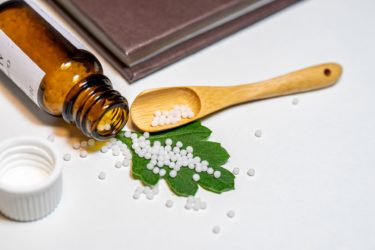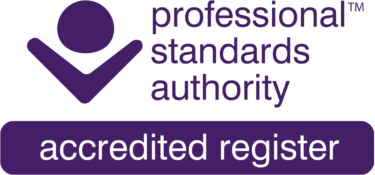Last week, the Society of Homeopaths announced that it was withdrawing from the Accredited Registers programme of the Professional Standards Authority. The withdrawal is the final chapter in the long-running saga of the Society’s accreditation, which was first granted in 2014 and has remained highly controversial since.
When it comes to healthcare regulation, the landscape in the UK is something of a mixed bag. Some regulators, for example, are statutorily regulated: such as the General Medical Council, the General Dental Council, the General Pharmaceutical Council and the Nursing and Midwifery Council. Among this list of conventional health and social care professions with statutory regulation sits the General Chiropractic Council and the General Osteopathic Council – somewhat surprising inclusions, given the pseudoscientific nature of chiropractic and osteopathic treatments. These bodies are themselves overseen by the Professional Standards authority – the government body which oversees and accredits healthcare bodies.
With statutory regulation, at least in theory, these two pseudoscience-centric professions can be effectively policed: ‘chiropractor’ and ‘osteopath’ are protected terms, so it is unlawful to use either term without having the relevant qualifications and without being registered with the relevant regulator. However, in practice, once again things are much more of a mixed bag. When presented in the past with complaints regarding osteopaths making misleading claims in their advertising (such as on websites and in social media posts), the General Osteopathic Council has indicated that they’re unwilling to consider a claim noncompliant unless each complaint has first been ruled on by the Advertising Standards Authority – essentially, one might argue, shifting the burden of statutory regulation onto a non-statutory organisation with limited resources and no obligation to investigate every case presented to them. This seems to be absurd: a regulator of a healthcare modality should not need to refer to an advertising industry watchdog to understand what the treatment it regulates can and can’t do.

The General Chiropractic Council has shown more of a willingness to engage with reports of misleading claims from their registrants (particularly over the last eighteen months), but the frequency of misleading claims within the chiropractic industry remains high – in an audit I conducted last month for the Good Thinking Society, 56% of the 50 chiropractors chosen at random were making claims that were not compliant with the advertising code, with 38% of chiropractors making claims that were clearly or seriously noncompliant. Some of the issues found included the promotion of applied kinesiology, of pseudoscientific food intolerance tests, claims to treat colic in babies, and attribution of health issues to ‘subluxations’ – the term used by the founder of chiropractic, D. D. Palmer, to describe blockages in the flow of ‘innate intelligence’ through the spine, which according to Palmer were responsible for an implausible number of health issues. These are not claims that should be supported by any responsible healthcare practitioner, and many of the claims I found were almost identical to the ASA’s textbook examples of noncompliant claims.
Voluntary ‘Accredited Register’ Programme
While osteopaths and chiropractors are the only alternative medicine practitioners who are subject to statutory regulation, they’re not the only ones to fall under the remit of the Professional Standards Authority – the PSA have a parallel voluntary scheme, the Accredited Register (AR) programme, which healthcare industry bodies can choose to be part of. Being part of the AR programme means abiding by certain standards, concerning safety, accountability, and good governance. In return, registrants to an accredited register are able to (and, indeed, must) display the logo of the Professional Standards Authority on their communications. While the presence of the logo does not mean the PSA, and by extension the UK government, endorses the clinic in question or the therapies they carry out, practitioners have been known to highlight their registration with an accredited register as an illustration of their professionalism and expertise, it is easy to see how a member of the public may then make the leap into assuming that if a therapist is accredited, the therapies they’re offering must be evidence based and effective.
For many of the organisations who have signed up to the AR scheme, this risk is likely to be minimal – it’s unlikely (though not impossible) that the fields of non-surgical cosmetic treatments, play therapy, sports rehab or counselling are rife with claims that run directly contrary to the best available evidence. However, in the case of other accredited registers, the risk of being seen to endorse pseudoscientific modalities is much higher – such as in the case of the Complementary and Natural Healthcare Council (whose members include naturopaths, reiki practitioners and craniosacral therapists), the Federation of Holistic Therapists, or the Society of Homeopaths.
In the case of the Society of Homeopaths, the potential risks represented by its registrants need not be the subject of speculation, as recent years have seen media investigations demonstrate time after time that homeopaths registered to the Society are willing to make claims that go far beyond the evidence when it comes to promoting homeopathy (which is easy to do, of course, given that the evidence shows homeopathy offers no benefit at all).
A history of noncompliance
In April 2018, after excellent work from tireless skeptics and activists like the UK Homeopathy Regulation blog, the Guardian reported on more than 120 homeopaths who were claiming to ‘cure’ autism via the CEASE therapy – a regime of homeopathic treatments and vitamin C megadosing, which claims that toxins in vaccines are the cause of autism, and that their therapy can offer Complete Elimination of Autistic Spectrum Expression. Needless to say, autism is not something that can or should be ‘cured’, and no amount of homeopathic sugar pills is going to achieve that dubious goal.
As the Guardian highlighted, a number of 120 CEASE therapists identified were registrants of the Society of Homeopaths, who were part of the PSA’s accredited register scheme. As such, the PSA gave the Society of Homeopaths a deadline by which they needed to ensure their registrants did not make claims to treat or cure autism, as a condition of its re-accreditation. A year later, in March 2019, the Advertising Standards Authority issued a warning to 150 homeopaths in the UK that they must stop advertising and offering CEASE therapy – once again, among their number were registrants of the Society of Homeopaths.
Despite having failed to effectively make it clear to their members that claims regarding autism and CEASE therapy were not acceptable, the Society of Homeopaths were reaccredited by the PSA in 2019. In the decision, the PSA acknowledge that CEASE therapy was potentially harmful and conflicts with the advice of the NHS in several respects, including with regard to the childhood vaccinations for potentially life-threatening conditions. Nevertheless, the PSA decided on April 1st to approve the Society of Homeopaths’ accreditation for a further year.
The decision to reaccredit the Society of Homeopaths was the subject of much criticism, and as a result the Good Thinking Society – the skeptical charity I work for – brought a Judicial Review to challenge the reaccreditation decision. We argued that for PSA accreditation to mean anything at all, the public needs to be confident that when the PSA identify potentially harmful therapies, they take the necessary steps to protect the public, rather than accepting it and, effectively, endorsing it. Around the same time, NHS Chief executive Simon Stevens and NHS national medical director Stephen Powis wrote to the PSA to express their serious concerns over the reaccreditation decision, explaining:
“This is a vital issue at a time when there is a rise of mis-information about vaccines – some of which is apparently promoted by homeopaths – and which poses a significant danger to human health.
“The basis of their practice remains fundamentally flawed”
It is hard to argue that the anti-vaccine misinformation is something that happened without the knowledge of senior figures at the Society of Homeopaths, either. In November 2019, an investigation by the Daily Mail revealed that Linda Wicks, the chair of the Society of Homeopaths, had been spreading dangerous anti-vaccine rhetoric on social media.
In February 2020, while Good Thinking’s Judicial Review was waiting for a High Court hearing, the PSA opted to reaccredit the Society of Homeopaths for a further year – however, this time in doing so they imposed a series of strict conditions that the Society must meet, in order to retain its accredited status, including forbidding registrants from spreading vaccine misinformation or claiming to treat or cure autism. As these conditions effectively addressed many of the concerns outlined in the legal challenge, Good Thinking withdrew the Judicial Review.
The PSAs new conditions had been imposed for less than six months when it was revealed that the newly-appointed Safeguarding and Professional Standards Director, Sue Pilkington of Somerset Homeopathy, had herself shared anti-vaccine conspiracy theories on social media. The fact that the Society had appointed someone who had spread vaccine misinformation to the position ensuring registrants did not spread vaccine misinformation unsurprisingly did not go down well with the PSA, who imposed yet more conditions on the Society of Homeopaths. Meanwhile, throughout the pandemic, registrants of the Society have been revealed to have promoted ‘bogus coronavirus treatments’ and spread misinformation regarding the safety of the COVID-19 vaccine, causing the head of NHS England to accuse them of having “crossed the line”.

It was perhaps no surprise, therefore, that earlier this year the Society of Homeopaths had their accreditation suspended, pending final efforts by the Society to meet the various conditions they had failed to meet the previous year. It was just as unsurprising when, late last month, the Society decided to withdraw from the PSA Accredited Register scheme entirely.
The Society withdraws
According to the Society of Homeopaths, the primary reason for withdrawal was not their failure to prevent their registrants from spreading autism misinformation and anti-vaccine propaganda. Instead, the Society claim, the real reason that they will no longer seek accreditation is financial:
After a number of consultations with the Authority, it has become clear to the Society that the new fee structure for the Accredited Registers Programme disadvantages smaller organisations in favour of larger bodies, and the fee increase proposed by the Authority to the Society, aside from lacking clarity for the future, effectively prices us out of the scheme.
While I have no real reason to doubt the difficulties the Society of Homeopaths claim to have in being able to afford the cost of accreditation, it’s hard not to view their withdrawal in the light of their suspension, and the lack of progress they seem to have made in meeting the conditions the PSA imposed. The Society have assured their followers that their usual standards of practice will not be affected by the lack of regulatory oversight:
Public protection, patient safety and patient choice are paramount and built into all the Society’s processes and governance. Accountability is ensured through a balance of representation by practitioners and independent members on the Board as well as on the Society’s professional standards and education committees.
It is worth reiterating at this point that the processes and governance of the Society of Homeopaths allowed for vaccine misinformation to be spread by their chair in 2019, and their Safeguarding and Professional Standards Director in 2020. One would hope that the significant flaws in the processes and governance that allowed for these appointments to happen were one of the areas the Society of Homeopaths did manage to make progress towards fixing.
While the withdrawal statement from the Society of Homeopaths cites their financial concerns as primary, they do hint at other potential issues with their continued inclusion in the scheme, explaining that, at the time of issuing their statement, “further changes to the Authority’s standards and criteria are also still to be confirmed”. The following week, the PSA issued their own statement, announcing their reworked Standards, which came after a 2020 public consultation sought insight from the public around what value accreditation has and what accreditation means.
Regulation in the public interest
According to the PSA, the new Standards by which healthcare registers will be judged eligible to be part of the Accredited Register scheme includes a ‘public interest’ test:
Our ‘public interest’ test will allow us to weigh up whether the evidence about the benefits of treatments covered by a register outweigh any risks. We will also consider how clearly and accurately the register and its registrants describe these benefits and risks. This will help to make sure that patients, service users and employers can have confidence about choosing services from someone on an accredited register.

The inclusion of a public interest test – a proof that a treatment’s benefits outweigh its risks – ought to be a key development for the PSA’s Standards. It also stands to reason that a treatment that can offer no provable benefits (demonstrated by a reliable and robust form of evidence, or a reasonable prior plausibility of efficacy) would struggle to clear any risk-benefit threshold. I’d certainly find it hard to argue that the benefits of comprehensively-disproven treatments such as homeopathy outweigh the risks posed to patients through misleading claims of autism ‘cures’ and the spreading of vaccine misinformation.
The introduction of the PSA’s new Standards, including the requirement that a register must be able to demonstrate that therapies offered by their registrants offer sufficient benefit to outweigh the risk, may prove a headache to more than just the Society of Homeopaths – the new public interest test may prove to be the undoing for a number of voluntary registers of dubious, unproven and disproven modalities. Meanwhile, it should allow responsible practitioners of evidence-based therapies to continue with confidence, and hopefully reassure the public that the logo of the PSA on the website or marketing materials of a clinic or practitioner has real meaning.



